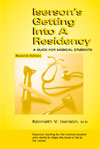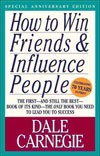Why do you write?
***
I don’t have a handle on what’s happened here, though it’s completely under my control. The Rumors Were True began as a manifestation of envy. I’ve told this story before, but I used to write just to make my friends and family laugh. With some practice, I got to the point where I had a reputation for pulling it off. And as it has happened so many times when I find myself becoming successful with something originally challenging, I bore of it and stop. So it was with writing for a laugh.
I needed a new challenge.
Two years ago, I found PURRTY GUD and I was blown away by his writing. I thought, “here’s a guy that is just better than me. Usually with some work, I can match people at things like this but not him and not now. He’s just better.” I knew I was forever less, so it was a perfect place to begin. And fueled by my feeling that I would never measure up and my jealousy for this talent, I began RWT.
In the beginning, it was very stupid. It was very distant. I’m not sure that someone who started reading at that point would have ever gotten a picture of who I was, other than somewhat snarky and in love with my own diction (you can laugh at that). But slowly I started to write things that were a little more naked and personal, and it was from these things that I received the strongest responses. Soon, the goal of every week was to write something good enough to be included in Grand Rounds and I chased that for months.
At this point, I wanted to be famous. I fell into the trap of obsessing over my statistics. How many people read my last story? Where were they from? How long did they stay? Who thinks my story is good enough that they’re telling people to read it? And so on. Finally, I reached a point where 100 people were coming to read every day and I was very proud. I wrote to a friend of mine, “In one year, 1000 people will come to read me every day.” This is what passed for my goals.
Beginning in August of 2006, I was intoxicated with medical school and the Welcome to Grenada project. I was writing about my love of Anatomy, my research, my introduction to clinical medicine on the islands, and about the islands themselves. Writing the WTG guide began to take over the RWT, and I split it into its own blog with its own management, but already the character of my writing was changing again.
I began writing about what I was thinking. I began reacting to things instead of planning every word. I started writing about Flash Raves, MicroCredit, and I struck a chord with my reaction, “A Lazy Attack on Atheism.” What I wrote was becoming less and less about medicine and more and more about me. It was because I was becoming more comfortable with the thought that strangers could know my secrets and that would be “okay”. It was also because I was running out of ideas, grasping at straws. I thought often about ending RWT.
I tried to suck some water from the well by writing Pancakes Every Morning. I hosted Grand Rounds because I was hungry for some new kind of challenge. Immediately after, I gave everything I had left to The Old Man, which I consider to be the best thing that I have ever written and the only thing I ever did outside of my comfort zone. And after that, I felt done.
I twitted away the next month writing pieces I didn’t care about. I started researching the business and law behind the practice of medicine because it was interesting and I was ignorant. But I was empty. I had nothing left worth writing and I had stopped finding joy in it.
RWT should have died long ago save for the USMLE. I found in writing about that experience a steady supply of “new” and a comfort zone of writing guides for others. Telling someone what to do is an easier thing than writing to evoke a feeling. I was jumping over the lower bar.
And then I found a reason to write again.
I became so engulfed in the material while preparing that I began to see deeper into it than I had before, and I was able to spot conflicts and connections as easily as you would spot marinara on a pressed white shirt. It became clear to me. I discovered this while using the First Aid for the USMLE book, and when I went to find a website that listed its errors, I found not a single one.
And I complained about there not being a source. I have written before about my own guiding principle: The Categorical Imperative. In this case (as in all cases), complaining required action: since I wished someone had already made a list of errors, I could not complain about it unless I was willing to make the thing that I felt was missing. This became my reason for writing: to compile a perfect and complete list of errors. To scour the book as few others had ever done and, in doing so, to know more about everything.
Before I knew it, RWT was no longer a place for my writing: it was a one-stop-shop for USMLE adivce, textbook corrections, and so on. This was more interesting to more people than my stories ever were and I quickly reached an average of 1000 visitors a day. The success was discouraging, and insomuch as my statistics were a progress report, I felt that connection had been completely lost.
And as it has happened so many times when I find myself becoming successful with something originally challenging, I bore of it and stop. So it was with writing about medicine.
Perhaps I set the bar too low or that I chose the wrong metric for success. Whatever the case, it couldn’t have happened at a worse time as I left for Asia and from writing for the next six weeks. Long distance for any weak relationship delivers the final blow. I felt done with writing. In the weeks after returning, my only reason for coming back here was to update and maintain the USMLE portion of this site. Whatever drove me before was gone.
And now as I begin the second half of my medical school career, I find I need something from this space, from whomever has stuck around this long to see if I have anything left to say, that I cannot get. RWT feels ruined by its success. From the First Aid Errors project, I earned the attention and interest of the First Aid Team. Shortly, I will begin working for them. This is fantastic news that I have not been able to share with you until now.
At the same time, I am applying for transfer to US medical schools, and the successes of the Welcome to Grenada Guide and the FA Errors have become selling points on my application. This has made RWT public (as it always was) and has stripped me of any illusions of anonymity. I have never been as diligent about keeping myself anonymous as I could or should have been, but its loss has never been so obvious to me as it is now. At a time where I need this space to be a place for me to be my most honest, where I need the catharisis of venting and a chance to share my frustrations with feeling uncertain about my future and my fears that medicine has facets of it that I feel strongly against, RWT has begun to feel as much a liability as an asset.
I feel watched. I feel known in an uncomfortable way. I feel twisted into self-censure.
I cannot write the way that I need to on RWT anymore. It no longer feels like my journal and a safe for my memories. Now, it feels like a bulletin board of updates and other stale things. I could continue to write here about happy things, about funny things, about critiquing things but I cannot write about sad things, frustrating things, about hating things. I am not Ying or Yang, but the pair, and I worry that this simple thing that is true about all of us could hurt me to show it. I worry about a dishonest portrayal of what life is like.
And now I think it is time for RWT to end. Not deleted (because people still find use in it), or forgotten (it remains the safe for everything that happened to me early on in this new life) or regretted (I learned so much about myself while writing it).
It will end because I was sloppy and couldn’t keep it from mixing with the reasons not to write.
***
Why do you write?
I write to think.
I write to remember.
I write to help others.
I write to stretch and twist and understand new ways of seeing the world.
I write to help people understand me, if for no other reason than to feel understood. To connect.
I write to make you a part of my life so that mine feels larger.
I write for vanity.
I write for the freedom of anonymity.
I write because I need to feel whole and this gets me there.
***
I look back to PURRTY GUD now and I better understand him. He was anonymous to the world as he wrote but his family and friends were all reading. He wrote about it ruining things, about feeling like it was bringing more harm to him than good. When he graduated, he decided to end the blog and start a new one for his residency. It was then that he revealed his name. It wasn’t a few weeks before it completely disappeared. He gave out his email address for those that wanted to know if he was ever writing again and if they could follow him to this new anonymous place.
He hasn’t. I think I get it now.



 Posted by rumorsweretrue
Posted by rumorsweretrue 
 A little over a year ago, I was behind in my work and trying to catch up. Procrastinating, I wrote a short blurb about how going to medical school is like having to eat a stack of pancakes every morning. Some people thought it was funny. About 10 months later, a good friend of mine at Saint Louis University Medical School called me up to ask if he could use the concept for a 72-hour film competition. Of course, I said yes.
A little over a year ago, I was behind in my work and trying to catch up. Procrastinating, I wrote a short blurb about how going to medical school is like having to eat a stack of pancakes every morning. Some people thought it was funny. About 10 months later, a good friend of mine at Saint Louis University Medical School called me up to ask if he could use the concept for a 72-hour film competition. Of course, I said yes.


